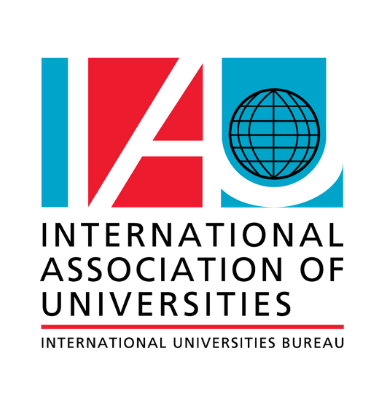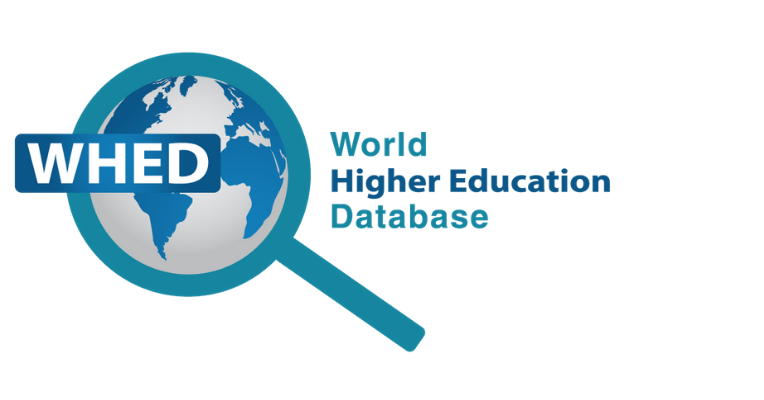


Iceland
Types of HEIs
1 : Háskóli : University
2 : Kennaraháskóli : University of Education
3 : Landbúnadarháskóli : Agricultural University
4 : Listaháskóli : Academy of the Arts
Pre-Higher Education System
entry:6
exit:16
Basic : Grunnskóli
Length of program:10
Age level from:6
Age level to:16
Upper Secondary : Framhaldsskóli
Length of program:4
Age level from:16
Age level to:20
Certificate/Diploma awarded at end:Stúdentspróf
Pre-primary education is not compulsory. Basic education is compulsory and lasts for ten years (6 to 16 years of age) leading to the Grunnskólapróf Certificate. Upper secondary education covers four years and is open to anyone who has completed compulsory school. Courses lead to the Studentspróf. Secondary vocational education lasts from one semesters to 4 years' study.
Higher Education System
While pre-primary and compulsory education is the responsibility of municipalities, central government is responsible for the operation of upper secondary schools and higher education institutions. Although education in Iceland has traditionally been provided by the public sector, a certain number of private institutions are in operation today, primarily at the pre-primary, upper-secondary and higher education levels.
The Public Higher Education Institutions Act no. 85 (2008)
The Higher Education Institutions Act no. 63 (2006)
Icelandic, English
University level first stage : Diploma/ Bachelor's degree
Description:The first cycle of higher education includes 2 stages leading to (1) the Diploma (1 semester to 2 years' study) and (2) the Bachelor's degree (3 to 4 years' study).
University level second stage : Qualification at Master level/ Master's degree
Description:The second cycle of higher education includes two stages leading to a qualification at Master level (1 semester to 2 years's study) and the Master´s degree (1 1/2 to 2 years' study).
University level third stage : Doctoral degree
Description:The third cycle of higher education cycle has one stage leading to the Doctoral degree.
Higher education teachers are trained in universities and they advance in the academic hierarchy according to diplomas and degrees obtained. They must have completed at least a Master's degree or have equivalent knowledge and experience.
Bodies
Háskóla-, iðnaðar- og nýsköpunarráðuneytið
Role:Government body responsible for all school levels from pre-primary and compulsory education through to the upper secondary and higher education levels, as well as continuing and adult education.
Street:Arnarhvoli við Lindargötu
City:Reykjavik
PostCode:101
www:https://www.government.is/ministries/ministry-of-higher-education-science-and-innovation
Contacts:- Áslaug Arna Sigurbjörnsdóttir (Head), Job title : Minister
- Ásdís Halla Bragadóttir (Senior Administrative Officer), Job title : Permanent Secretary
Services provided and types of students dealt with:Recognition of studies completed and credentials awarded in foreign countries.
Recognition for institution:yes
Recognition for profession:yes
Street:University of Iceland Saemundargata 4
City:Reykjavík
PostCode:101
Contacts:Gisli Fannberg (Head), Job title : Head of Centre
Háskóla-, iðnaðar- og nýsköpunarráðuneytið
Street:Arnarhvoli við Lindargötu
City:Reykjavik
PostCode:101
www:https://www.government.is/ministries/ministry-of-higher-education-science-and-innovation
Admission to Higher Education
Stúdentspróf
Requirement for:Technical and vocational courses
For some vocational studies at colleges additional work experience may be required.
Stúdentspróf
Requirement for:all higher education institutions.
A foreign equivalent of a secondary-school-leaving Certificate can be accepted as an entrance requirement.
In addition to the general admission requirements (stúdentspróf), individual universities or faculties may have specific requirements.
Definition:Foreign students are persons enrolled at a higher education institution in Iceland but not permanent residents in Iceland.
Admission Requirements:The minimum qualification required of foreign students is a pass in the final examination of a Scandinavian or European type of upper secondary education. In general, students must possess the necessary qualifications to enter a university in their respective countries.
Quotas:With the exception of the University of Iceland and the University at Akureyri, Icelandic higher education institutions limit their intake of students each year.
Health:Students from non-Nordic and non-EU countries should make arrangements for health insurance before they leave their home countries.
Language Proficiency:Students must have a good knowledge of Icelandic. Courses are arranged for foreign students at the University of Iceland.
Entry Regulations:Foreign students entering Iceland from non-Nordic and non-EU countries must submit documents proving that they have been admitted to an Icelandic higher education institution and evidence that they are financially self-sufficient. They must also register with the Immigration Office.
Application to Individual Institution:Yes
Recognition of Studies
The Minister of Education, Science and Culture grants accreditation to higher education institutions that fulfil the criteria laid down in national legislation as well as internationally accepted criteria. The Quality Board for Icelandic Higher Education has issued a Quality Enhancement Framework (QEF) that includes various elements of quality assurance and enhancement such as reviews at institutional and subject levels as well as continuing and additional accreditation of HEIs.
Recognition of studies completed and credentials awarded in Iceland is the responsibility of the higher education authority concerned. In 2003, the five Nordic ENIC/NARIC offices (Denmark, Finland, Iceland, Norway and Sweden) established a regional network named Nordic National Recognition Information Centres (NORRIC) to initiate joint Nordic projects to learn from each other and reduce barriers to the recognition of foreign qualifications in the Nordic region (http://www.norric.org).
For Access to University Level Studies:Recognition of foreign Certificates and Degrees is usually dealt with on an individual basis by the Institution in question. The minimum entrance requirement for foreign students applying for admission to an Icelandic University is a pass in their School Leaving Certificate from a Scandinavian secondary school or European equivalent. Students from the USA must have completed the sophomore year of a Liberal Arts College programme.
Convention on the Recognition of Qualifications concerning Higher Education in the European Region. Lisbon, 11 April 1997 (2001)
Global Convention on the Recognition of Qualifications concerning Higher Education. Paris, 25 November 2019. (2022)
Student Life
Is there social security:Yes
Is there social security:Yes
Credentials
Stúdentspróf
Description:The studentspróf secondary school credential is awarded after four years of study in upper secondary schools and technical secondary schools. It gives access to higher education
Diplómapróf
Description:Qualification obtained at a higher education institution where the holder has completed 30–120 ECTS credits of an organised study programme.
Credential required for entry:Stúdentspróf
Type of institution where credential is offered:Háskóli (University)
Kennaraháskóli (University of Education)
Landbúnadarháskóli (Agricultural University)
Listaháskóli (Academy of the Arts)
Bakkalárpróf
Description:Qualification obtained at a higher education institution where the holder has completed 180–240 ECTS credits of an organised study programme.
Credential required for entry:Stúdentspróf
Viðbótarpróf á meistarastigi
Description:Qualification obtained at a higher education institution where the holder has completed 30–120 ECTS credits of an organised study programme at the second cycle of higher education. It does not include a research project, or the project is less than 30 ECTS credits. Examples of degrees and qualifications at this stage (2.1.) are: MPA, MBA, Diploma at Master level, Candidatus degree, etc. Although it does not allow holders to enter a doctoral programme, they may go on to a Master's programme which in turn can lead to doctoral programme entry.
Credential required for entry:Bakkalárpróf
Type of institution where credential is offered:Háskóli (University)
Kennaraháskóli (University of Education)
Landbúnadarháskóli (Agricultural University)
Listaháskóli (Academy of the Arts)
Meistarapróf
Description:Qualification obtained at a higher education institution where the holder has completed 30–120 ECTS credits of an organised study programme at the second cycle of higher education. A Master´s degree includes a research project of at least 30 ECTS credits, and can lead to a doctoral degree.
Entrance exam test at Institution level:unknown
Credential required for entry:Bakkalárpróf
Viðbótarpróf á meistarastigi
Type of institution where credential is offered:Háskóli (University)
Kennaraháskóli (University of Education)
Landbúnadarháskóli (Agricultural University)
Listaháskóli (Academy of the Arts)
Doktorspróf
Description:Qualification from a higher education institution where the holder has completed at least 180 ECTS credits of an organised study programme at the third cycle of higher education. A Doctoral degree shall include a research project that fulfils international criteria for a Doctoral thesis.
Credential required for entry:Meistarapróf
Type of institution where credential is offered:Háskóli (University)
Kennaraháskóli (University of Education)
Landbúnadarháskóli (Agricultural University)
Listaháskóli (Academy of the Arts)
Data Provided by
From:2019
To:2020
IAU from the websites of the Ministry of Education, Science and Culture and the NORRIC Network, May 2020. Bodies updated September 2023.
Updated on 14-05-2020
